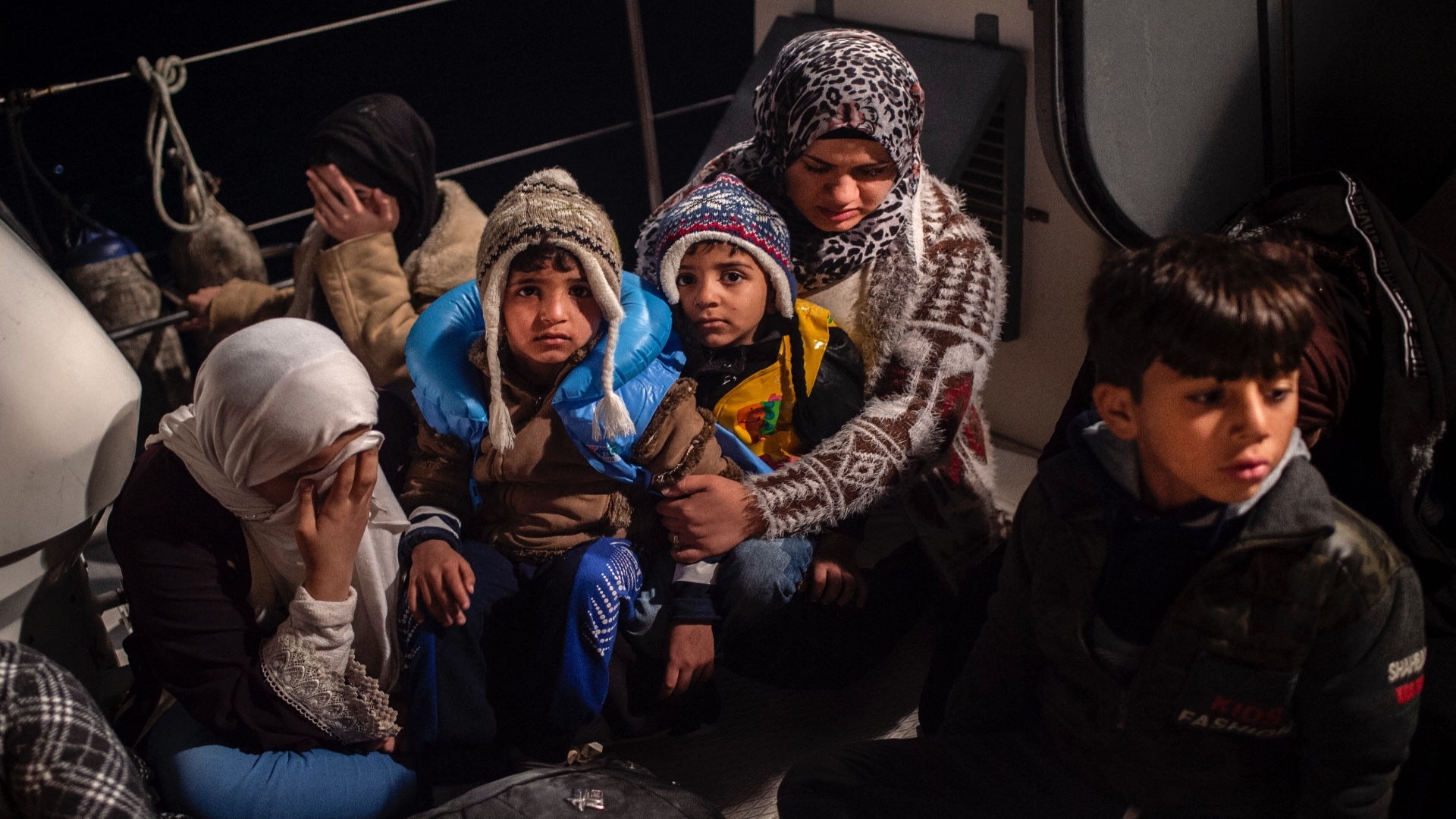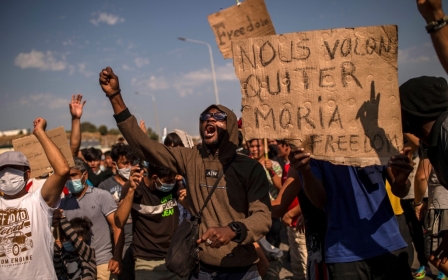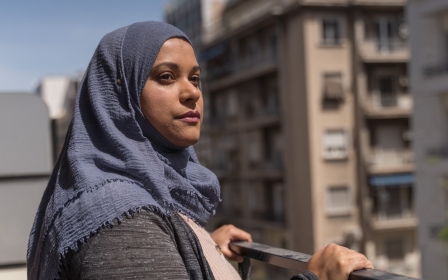Greece: Aid workers decry 'abductions, violence' against refugees in Lesbos

Doctors Without Borders (MSF) is calling on the Greek authorities to investigate reports of violence, pushbacks and abductions as well as deprivation of food and basic assistance faced by refugees on the island of Lesbos.
According to the NGO, newly arrived refugees have suffered alleged attacks by unidentified masked groups who gain trust by posing as doctors. Last October, MSF reported finding a group of refugees tightly bound and injured, reportedly by a masked gang.
"This practice is shocking and an unacceptable manipulation of humanitarian aid. It must stop," MSF Sea tweeted.
The NGO also reported experiencing increasing difficulty locating people in urgent need of medical care. Since June 2022, MSF said, it was unable to find 940 people from reported locations and it was assumed they had been pushed back out to sea.
Although the Greek government has repeatedly been accused of performing illegal pushbacks, the authorities consistently denied this practice. However, last week, a New York Times report into damning footage of the Hellenic Coastguard rounding up 12 migrants, among them young children, and setting them adrift on an inflatable raft in the Mediterranean suggests that the Greek authorities are ramping up these extrajudicial expulsions.
New MEE newsletter: Jerusalem Dispatch
Sign up to get the latest insights and analysis on Israel-Palestine, alongside Turkey Unpacked and other MEE newsletters
According to Duccio Staderini, head of mission for the MSF Greece and Balkans mission, the organisation received a report of 103 migrants needing medical attention on the same day as the pushback reported by the New York Times.
"We found only 91. The fact that the New York times reported 12 migrants [were pushed back] suggests that they could be our missing 12," Staderini told MEE.
Following the report, the EU Commission demanded a full and independent investigation into the incident.
In his first interview since his election win last week, the Greek prime minister, Kyriakos Mitsotakis, confirmed that it is "already being investigated". During his election campaign, he defended his government's "tough but fair" migration policies and lauded a 90 percent drop in arrivals of "illegal migrants".
Caught in the Act
For Maro, a volunteer for Alarm Phone, a self-organized hotline for refugees in distress in the Mediterranean Sea, the report came as no surprise. Maro has heard many similar stories.
"But it's the first time that we saw video footage documenting [a pushback] step by step," Maro told MEE. "We have seen photos... but this is the first time that [the coastguard] are being caught in the act.”
But Maro was sceptical about the calls for an Athens-led investigation.
"It is very clear the investigative body will be under the influence of the government," Maro said. "Everybody is calling for more investigations. How about actual measures, like cutting funding? The EU is providing Greece with money for migration management, but nobody is putting cutting the funding on the table."
'The EU is providing Greece with money for migration management, but nobody is putting cutting the funding on the table'
- Maro, Alarm Phone
Since 2015, with the arrival of over one million Syrian and Iraqi refugees, Greece and the EU have progressively hardened stances on migration.
A 2022 report by the European Centre for Constitutional and Human rights described "a systematic state policy" of extrajudicial pushbacks by Greek authorities. Also in 2022, Human Rights Watch reported the use of masked migrants as proxies to perform illegal pushbacks on Greece's land border with Turkey. Afghan asylum seekers reported assault, theft and being forced to strip by these masked gangs.
On 14 March, following an alleged pushback by the Greek authorities, the Turkish coastguard recovered four bodies following the sinking of two dinghies off the coast of Turkey.
Greece does not act alone; a 2020 report by Lighthouse revealed the country's close collaboration with the European Border Agency, Frontex, in the pushbacks.
'Explosive' conditions
In the camps on Lesbos, conditions are reported to have deteriorated significantly. On 17 May, MSF reported that authorities were denying food to recognised refugees and threatening to evict them.
"The conditions on Lesbos are explosive, people are left without any other option," Stadineri told MEE.
In Megala Therma, a camp on Lesbos initially intended for quarantine after the onset of the Covid pandemic, overcrowding and a scarcity of beds are preventing urgent medical access. Food is distributed only once a day.
"There is nothing in new in all this, Moria is repeating," " Stadineri said, referring to the Lesbos camp notorious for its squalid and overcrowded conditions and which was swept by fire in 2020. "This is the fear. We're turning the reception system into a detentions and expulsion system."
Middle East Eye delivers independent and unrivalled coverage and analysis of the Middle East, North Africa and beyond. To learn more about republishing this content and the associated fees, please fill out this form. More about MEE can be found here.




